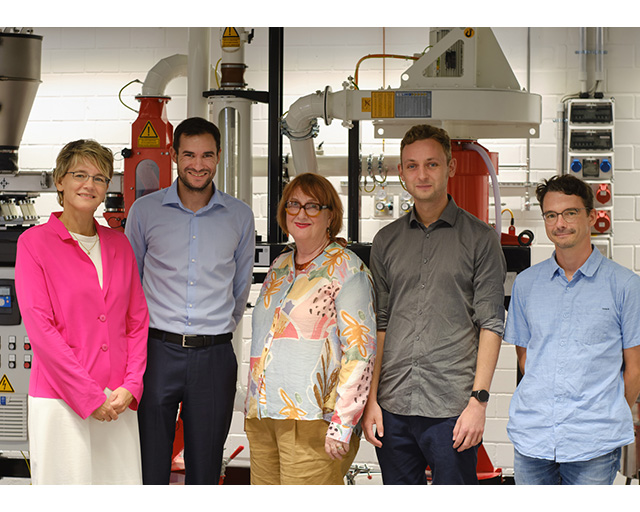Strengthening German-Canadian research cooperation
On behalf of the Canadian Memorial University of Newfoundland (MUN), the President of the European-Canadian Centre for Innovation and Research, Dr Britta Baron, visited TU Braunschweig at the beginning of August. The aim of her visit was to discuss the possibility of cooperation between the two universities in the field of wind and hydrogen economy.

The project which Memorial University wants to develop in collaboration with partners from Lower Saxony aims to establish a wind and hydrogen economy in Newfoundland. The focus will not only be on technical and engineering aspects, but also on economic and social contexts.
TU President Angela Ittel welcomed Dr Britta Baron to the TU Braunschweig campus and discussed the possibilities of cooperation with her. Afterwards, Baron, who received the Order of Merit of the Federal Republic of Germany in 2022 for her services to German-Canadian research relations, visited several institutes at TU Braunschweig. At the Institute for Jet Propulsion and Turbomachinery, the Institute for Flight Guidance, the Institute of Energy and Process Systems Engineering, as well as the Hydrogen Terminal Braunschweig, intensive discussions about possible research collaborations took place.
For Baron, the visit was an important step towards a potential collaboration: "The visit to TU Braunschweig opened many doors. The Newfoundland region is developing into a global hub for wind energy and hydrogen and will also grow into an important trading partner for green energy sources for Germany. TU Braunschweig and the non-university research institutions in Braunschweig have impressive expertise and a state-of-the-art research infrastructure that can support Memorial University in Newfoundland in building up its own research capacities and teaching programmes for the new green energy industry in eastern Canada."
TU President Angela Ittel added: “We are very keen to further strengthen German-Canadian research collaborations, and greatly appreciate Memorial University taking the initiative. Cooperation between our universities offers a tremendous potential for innovative, interdisciplinary research in wind and hydrogen economy, and the opportunity to expand our international network in North America at the same time.”
To round off the day, Baron visited the Fraunhofer Institute for Surface Engineering and Thin Films in Braunschweig, and learnt about the opportunities for cooperation there, too.
The discussions are to be continued at an online workshop for all partners involved in November.
About Memorial University
The Memorial University of Newfoundland was founded in 1925 as Memorial University College. It was granted full university status in 1949. Today, over 18,000 students from 115 different countries study at Memorial University. The university has six faculties in the fields of Business Administration, Education, Medicine, Natural Sciences, Engineering, and Arts, which are spread across six campuses in the Canadian province of Newfoundland and Labrador, and the United Kingdom.
Last modified: